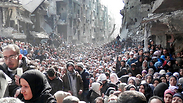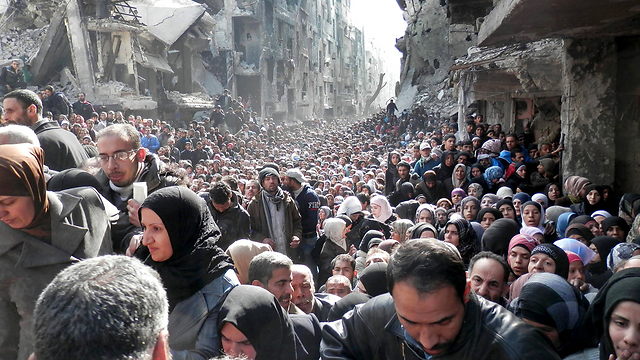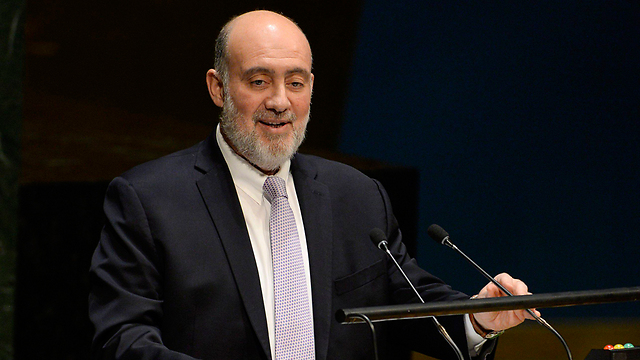
UN spends 4 times more on Palestinian refugees per person
Abba Eban Institute claims UN spends 4 times more money per Palestinian refugee than per any other refugee, while having 1 body for dealing with Palestinian refugees and another for the rest.
A Palestinian refugee receives a budget four times larger than a Syrian, Iraqi or African refugee, this according to a study conducted by the Abba Eban Institute of International Diplomacy at the Interdisciplinary Center (IDC) in Herzliya.
The findings of the study seem to reinforce Israel's traditional argument against the split between the United Nations High Commissioner for Refugees (UNHCR) and the United Nations Relief and Works Agency (UNRWA), which provides assistance only for Palestinian refugees.
The UN is currently addressing the largest refugee crisis in history—with about 68 million people worldwide seeking shelter.
At the end of last week, UNRWA released its annual financial report, which stated that in 2016 the organization spent an average of $246 for each of the 5.3 million Palestinians it defines as refugees, while UNHCR spent only a quarter of that, $58 per refugee.
In addition, the data show that UNRWA employs some 30,000 people, while the World Refugee Agency, which handles tens of millions worldwide, employs only 10,000 people.
Former Israeli Ambassador to the United Nations Ron Prosor heads the Abba Eban Institute, which formulated a plan of action for structural changes that will improve the treatment of refugees around the world by merging UNRWA into the UNHCR.
"Consolidating the budgets and manpower of both agencies will lead to better treatment of refugees," Prosor said. "In Jordan, for example, there are 44 clinics that treat refugees from the civil wars in Syria and Iraq, out of 233 clinics that are required for this mission. Alongside them are 25 UNRWA clinics that ignore Syrian refugees and care only for Palestinian refugees.
"Uniting the resources of the two agencies will enable more quality and efficient assistance, and contribute to a solution for what that the UN itself has defined as the most serious refugee crisis in history."
Prosor added that UNRWA is removing any chance of an Israeli-Palestinian understanding because it is working to empower the Palestinian refugee problem instead of trying to solve it, as evident by the increase from 710,000 refugees in 1948 to 5.3 million today.
Prosor added that he intends to present his plan to UN bodies soon and work to promote it.
A few weeks ago, the United States sought to reduce UNRWA's budget, and as a result, the Palestinians tried to transfer control of this budget to the UN General Assembly, but as a result of American pressure they withdrew this proposal.
UNRWA has a long history of anti-Israeli actions. A few weeks ago, for example, the organization's spokesman admitted that Hamas tunnels were located under the organization's schools in Gaza, and in Operation Protective Edge, UNRWA workers transferred weapons and ammunition concealed in the organization's facilities to Hamas.
Israel has for years argued that the UN and the Palestinians themselves are working to perpetuate the Palestinian refugee problem and oppose any attempt to permanently settle the refugees in the places where they are, including the refugee camps in the West Bank. Attempts to transfer the refugees in the West Bank to new residential neighborhoods have been thwarted by the Palestinian Authority.












